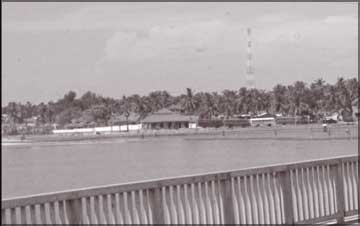Colonization: the myth and reality
 Colonization in its correct sense is settlements created by foreign
powers after having captured weaker countries. Since the Sri Lankan
government is the democratically elected government of the sovereign
state of Sri Lanka and since it is the government that is the deciding
authority on land, the use of the term 'colonization' to describe
government allocation of land is highly irrelevant in the Sri Lankan
context. Colonization in its correct sense is settlements created by foreign
powers after having captured weaker countries. Since the Sri Lankan
government is the democratically elected government of the sovereign
state of Sri Lanka and since it is the government that is the deciding
authority on land, the use of the term 'colonization' to describe
government allocation of land is highly irrelevant in the Sri Lankan
context.
Those who do not learn from the history are bound to make the same
mistakes over and over again and this twisted logic on 'colonization'
has been a principal 'grievances' that propelled the LTTE to create
havoc in this country.
|

Large scale construction projects under Uthuru Vasanthaya
programme |
The fact about Sri Lanka is when you consider the population density
and the geological reality, it is only in the three provinces of North,
East and Uva that mega development projects are feasible. Hence in
independent Ceylon the first project in the East was started at Galoya
on the Eastern slopes of the Mahaveli river (the longest river in Sri
Lanka). The statistics on these land allocations would prove that the
government sponsored land allotments for landless in Sri Lanka since
independence have been fair and accommodated all communities.
Plantation labourers
The unreasonable and the non inclusive nature of these allegations
made by some communal minded leaders become very plain when you consider
the fact that there are about a million Tamils (of recent Indian origin)
living in the hill country in lands that historically belonged to
Sinhalese peasants and up to now no government has attempted to send
those Tamils out of the area on the basis of their ethnicity.
Development journey
These Tamils, as we know, were brought to colonial Ceylon by the
British colonizers as indentured labour to work in the plantations. The
TULF still uses the 'Disfranchisement of Tamil plantation labour' in its
famous list of grievances, especially when they go to India, but yet
very surreptitious when it comes to a discussion on where these
plantation labourers are settled. Further there are more tan 500,000
Ceylon Tamils who have bought land and settled down in the so called 'Sinhala
areas' mainly in Colombo and the suburbs. When this is pointed out to
the TULF it tries to justify its stand by maintaining that they are not
against voluntary movement by people but what they are against is the
settlement by the government. Well, voluntary movement is when people
seek to settle down in areas other than the areas of their birth. Those
are settlements by preference and naturally in areas that are developed
like Colombo and its suburbs. These preferential settlements require
quite a lot of money as the land in the developed areas are expensive
and hence only those who have money will be able to settle down in such
areas. On the other hand, these people, to whom lands were granted by
the government in the 1950's had been landless farmers and they could
neither make a living nor make a contribution to the country's
development because they had no money to buy lands.
Hence, it is the responsibility of a progressive government to
allocate the country's arable lands to its able farmers with the view of
developing the country and its people.
In any country, the lands are owned by persons and institutions
through registered deeds and the lands that are not claimed that way
become the property of the state. In no country do they have lands
belonging to communities. Sri Lanka is a country that belongs to all its
citizens and hence every Sri Lankan should be able live wherever he
chooses to or wherever the circumstances compel him to, without having
to be conscious of his ethnicity or religion. Today the picture is
different and Sri Lanka is in the process of embarking on a development
journey that requires some catching up with years lost due to
separatism. Hence to bring arguments in terms of 'Tamil areas' and 'Sinhala
areas' at this stage is nothing but an attempt to derail that
development and keep the people mired in that separatist psyche that
cost the country immensely in terms of resources and time.
[email protected]
|



